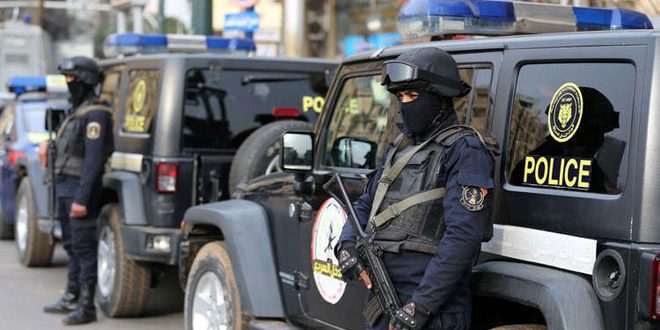“I was devastated and terrified; after the last time I was summoned I decided to leave Egypt at any cost. Before that I had never thought of leaving Egypt. I thought once the court probation period was over that I could live my life normally, but this summons terrified me. I am worried and I can’t think properly, and I can’t handle this situation… I’m tired and my family are too.”
With these words an activist and former detainee explains the impact of the National Security Agency’s summons and surveillance on her.
In a report issued a few days ago, Amnesty International revealed that Egypt’s National Security Sector, which is the political security apparatus of President Abdel Fattah Al-Sisi’s regime, is increasingly using a sophisticated pattern of illegal summons and coercive interrogations, which amount to cruel treatment or punishment. They are inhuman and degrading, as well as having excessive follow-up and monitoring measures against human rights defenders and political activists, in an attempt to harass and intimidate them with the aim of silencing them and destroying their lives.
The report, “This Will Only End When You Die,” documents how the NSA used illegal measures to control the lives of 21 men and nine women between 2020 and 2021 alone, putting them in constant anxiety and fear, depriving them of their basic rights, and impeding their ability to lead a normal life.
Illegal censorship
Under Egyptian law, a police surveillance order can be issued as a non-custodial alternative to pretrial detention by judicial authorities, and police surveillance can also be a complementary sentence imposed by the courts in addition to prison sentences. Those who are under police surveillance must spend a specified number of hours at home or in police stations for a specified period.
In a practice that amounted to police surveillance, but without a judicial decision or other legal basis, NSA officers would force individuals they perceived to be political or human rights activists to report to NSA offices in police stations or elsewhere from the headquarters of the National Security Agency on a weekly or monthly basis and threaten to arrest them if they do not comply with orders.
Those summoned must come on time, hand copies of their ID cards and phones to the police and spend 15 minutes to six hours at the appointed location. During this period, NSA officers sometimes interrogate them or on other occasions order them to leave without questioning them. The duration of these measures is indefinite because they are not based on a judicial decision, and they are left entirely to the discretion of national security officers.
It is impossible to determine the number of people subject to national security oversight, as this practice is carried out without orders from judicial authorities and there are no official written records available, but this practice is widespread. The international organisation has collected information about this practice in six governorates, namely: Cairo, Giza, Alexandria, Qalyubia and Dakahlia and Gharbia, which indicates its widespread nature.
Forced interrogations, torture and harassment
Homeland security officers regularly question those summoned about their human rights or political activities and opinions, including those they express on social media, as well as about the plans of opposition groups, political movements, or human rights organisations that security officers suspect they are affiliated with.
During these interrogations, National Security officers routinely violate victims’ right to privacy by intrusive questioning about their personal lives, or the personal lives of their relatives, and checking the content of their phones and social media accounts without a court order.
Some of those summoned for observation by the National Security were subjected to torture and various forms of ill-treatment. More than one person complained of being slapped, beaten, insulted, and threatened with enforced disappearance, torture and imprisonment. Some of those interrogated were also blindfolded, handcuffed, denied access to toilets, and denied water during the interrogation period.
More than one woman who was subjected to forced national security interrogations complained that they had been harassed, sexually assaulted, and threatened with rape.
All the women who were subjected to surveillance and forcible interrogation by the National Security Agency, interviewed by Amnesty International, said that there were no female police officers or female officials during interrogation or in police stations or national security buildings, which increased their vulnerability to violence and sexual harassment.
For some of the victims, persecution and threats continued even after they fled Egypt. A human rights lawyer who left Egypt after being summoned by the National Security Agency several times and pressured to provide information about the organisation he was working for said: “I received a letter from the national security officer responsible for me after I left Egypt saying that I was a coward to leave the country and that from now on I will be escaping for the rest of my life.”
There is no way to complain
Because these practices are extrajudicial, victims have no legal avenues to report them or to challenge the legality of a summons or surveillance by the NSA.
Repeatedly, a number of those questioned told how National Security officers bragged and acted with complete confidence that there would be no repercussions for their actions, and that they were above the law. One activist under probation said that the National Security officer who interrogated him bragged about not needing to blindfold him during interrogation and told him his real name, because he could do nothing to counter his actions or hold him accountable.
One activist who told Amnesty International that she was sexually harassed during her interrogation said that when she wanted to file a complaint against the officer who sexually harassed her, she was told: “What do you mean you want to file a complaint? Do you want to go back to prison? There is no such thing as filing a complaint here.”
The Public Prosecution is complicit in concealing national security crimes, as the Public Prosecutor has never investigated allegations of torture and enforced disappearance by the National Security Agency, and even “confessions” extracted under torture in National Security headquarters are accepted as evidence, which represents an additional obstacle to victims seeking to file legal complaints against abuses.





Recent Comments